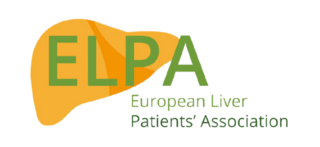
The United Nations Economic Commission for Europe is one of the five regional commissions under the jurisdiction of the United Nations Economic and Social Council. It was established in order to promote economic cooperation and integration among its member states.

SciELO is a bibliographic database, digital library, and cooperative electronic publishing model of open access journals. SciELO was created to meet the scientific communication needs of developing countries and provides an efficient way to increase visibility and access to scientific literature. Originally established in Brazil in 1997, today there are 16 countries in the SciELO network and its journal collections: Argentina, Bolivia, Brazil, Chile, Colombia, Costa Rica, Cuba, Ecuador, Mexico, Paraguay, Peru, Portugal, South Africa, Spain, Uruguay, and Venezuela.

The European Centre for Disease Prevention and Control (ECDC) is an agency of the European Union (EU) whose mission is to strengthen Europe's defences against infectious diseases. It covers a wide spectrum of activities, such as: surveillance, epidemic intelligence, response, scientific advice, microbiology, preparedness, public health training, international relations, health communication, and the scientific journal Eurosurveillance. The centre was established in 2004 and is headquartered in Solna, Sweden.
The Framework Programmes for Research and Technological Development, also called Framework Programmes or abbreviated FP1 to FP9, are funding programmes created by the European Union/European Commission to support and foster research in the European Research Area (ERA). Starting in 2014, the funding programmes were named Horizon.
Infomed is the Cuban health portal and the network of people and institutions that share the purpose of facilitating the access to the health information in Cuba.
The European Institute of Innovation and Technology (EIT) is an independent body of the European Union with juridical personality, established in 2008 intended to strengthen Europe's ability to innovate. The EIT’s three “core pillars” of activities are: entrepreneurial education programmes and courses across Europe that transform students into entrepreneurs; business creation and acceleration services that scale ideas and budding businesses; and innovation-driven research projects that turn ideas into products by connecting partners, investors, and expertise.

The Latin American and Caribbean Center on Health Sciences Information or BIREME was founded in São Paulo in 1967 as the Biblioteca Regional de Medicina, a specialized center of the Pan-American Health Organization (PAHO) / World Health Organization (WHO).

The Virtual Health Library (VHL) is an institution that employs the World Wide Web to "improve access to reliable, locally relevant information [on health and health sciences] for health-professionals, researchers, academics, educators, decision makers, and the general public". BVSes are organized under the auspices of the Pan-American Health Organization and the World Health Organization.
The European Institute of Oncology is a non-profit private-law comprehensive cancer centre located in Milan, Italy. It is a clinic, a research centre and a training institution. IEO is a member of EU-LIFE, an alliance of leading life science research centres in Europe.
The Community Research and Development Information Service (CORDIS) is the European Commission's primary public repository and portal to disseminate information on all European Union (EU) funded research projects and their results in the broadest sense.
The European Association of Urology (EAU) is a non-profit organisation committed to the representation of urology professionals worldwide. All active urology professionals, including urology nurses, are eligible for membership of the EAU.

The Consortium of European Taxonomic Facilities (CETAF) is a taxonomic research network formed by scientific institutions in Europe. It was formed in December 1996 by ten of the largest European natural history museums and botanical gardens to be a voice for taxonomy and systematic biology in Europe, to promote scientific research and access to European natural history collections, and to exploit European funding opportunities. Since then, CETAF has served as a meeting point for major European natural history museums and botanical gardens, and has initiated and played an important role in a number of projects.
COMMUNIA is a thematic project funded by the European Commission within the eContentplus framework addressing theoretical analysis and strategic policy discussion of existing and emerging issues concerning the public domain in the digital environment - as well as related topics, including, but not limited to, alternative forms of licensing for creative material; open access to scientific publications and research results; management of works whose authors are unknown.
The European Union – Latin America and Caribbean Foundation(EU–LAC Foundation) is an international organisation created in 2010 by the Heads of State and Government of the European Union (EU), Latin America and Caribbean (LAC) with the mission of strengthening and promoting the strategic partnership between both regions, improving its visibility and encouraging the participation of the respective civil societies.

The ePORTUGUÊSe network is a platform developed by the World Health Organization (WHO) to strengthen collaboration among Portuguese-speaking countries in the areas of health information and capacity building of Human Resources for Health, therefore enhancing health information systems in those countries.
The EuroMatrixPlus is a project that ran from March 2009 to February 2012. EuroMatrixPlus succeeded a project called EuroMatrix and continued in further development and improvement of machine translation (MT) systems for languages of the European Union (EU).
The National Documentation Centre is a Greek public organisation that promotes knowledge, research, innovation and digital transformation. It was established in 1980 with funding from the United Nations Development Programme with the aim to strengthen the collection and distribution of research-related material, and to ensure full accessibility to it. It has been designated as a National Scientific Infrastructure, a National Authority of the Hellenic Statistical System, and National Contact Point for European Research and Innovation Programmes. Since August 2019, it has been established as a discrete public-interest legal entity under private law, and is supervised by the Ministry of Digital Governance. The management bodies of EKT are the Administrative Board and the Director who, since 2013, has been Dr. Evi Sachini.

The Library of the Economic Commission for Latin America and the Caribbean was established in 1948 as part of the creation of the Economic Commission for Latin America and the Caribbean; this coincided with the inauguration of the Economic Commission for Latin America by the United Nations, in support of its mandate in the region. The Library has four branches: the Hernán Santa Cruz Library in Santiago, the Centro de Recursos de Información y Distribución de Documentos in México D.F., the Raúl Prebisch Library in Brasilia and the Caribbean Knowledge Management Centre in Port of Spain. These four form the ECLAC Library.

The European Liver Patients' Association (ELPA) is an international non-governmental organisation best known for its role in patient advocacy concerning liver diseases. ELPA is an umbrella organisation representing more than 30 members stemming from 25 European and non-European countries.
The European Network of Science Centres and Museums (ECSITE), is a not-for-profit organisation initiated in 1989.

























